So, people loved this TED talk about coming out of closets. It’s about how we all have closets to come out of. It was about courage. If you haven’t seen the talk yet, you should. People wrote on Facebook, “Unbelievable.” “Powerful.” “I’ve never been impressed with a TED talk … until now.”
I, however, was not impressed or inspired. I was uneasy. When speaker Ash Beckham said, “All a closet is, is a hard conversation,” I cringed. I had to turn the video off halfway through. And then I felt bad about myself, because obviously this sentiment appeals to people. Was I just bored and unimpressed because having a kid in preschool means that I come out to 4-year olds every day? Well, yeah, but I also felt anger. Where was my anger coming from?
So, apparently people really like hearing a butch lesbian tell them they have closets too and that their closets are just as scary as gay closets. I think I understand this part. We all suffer; we hide things; we’re ashamed. We long to hear that our pain is real and that people are all the same, after all. Aren’t we all afraid? So yeah, Ash Beckham, I feel you there. Secrets are bad, being inauthentic is bad, and if you keep things inside instead of being brave, you’ll get stressed and sick and poison yourself with guilt and self-loathing. You should just be you! Awesome!
But do we need to call every uncomfortable truth a “closet” and do we need to then, on top of that, insist that all closets are equal? No. It’s annoying, unnecessary, damaging, hurtful, and unkind to equate all closets — or even to refer to pregnancy as a closet. Make your point about personal courage without stealing the language of gay struggle for a cheap round of applause at a conference and 15 minutes of Facebook fame. Because there are important differences between misfortune and oppression.
Misfortune happens. So do cataclysmic life events. Divorce, pregnancy, love – they happen. But oppression is systemic. I mean that when you are gay, there are actual laws and systems and customs and social norms that say you are less than, that you cannot get married, that you can be mistreated for being who you are, that you cannot adopt children or that you must adopt your own children , as we did, to prove they are yours. A relative of mine lives in a state in which he can get fired from his job for being gay. He is not alone; 29 states allow companies to fire gay workers for no reason other than who they are. On top of the legal punishments for being gay, there’s social rejection. To put it more bluntly, people find you repulsive, they hate you, they think you are a child molester. They might wish you were dead. They might kill you. Or, if you are like two women who live near my wife’s home town, someone might come out to your house in the night and poison your four dogs.
Many of us would like to believe that we live in a time when being gay is safe. I’ve been to the Walnut Café in Boulder, and it is clearly, decisively gay friendly. Anyone who brings a kid in there is not going to hurl homophobic invective. When describing the supposedly powerful moment when she came out to a 4-year-old girl while waiting tables, Beckham builds up the suspense of her confrontation and then says, “It was the easiest hard conversation I have ever had, because pancake girl and I, we were real with each other.” Okay, fine. Ash Beckham was real with a 4-year-old in a progressive lefty café in Boulder. It’s a cute story. But it’s ridiculous to suggest that gay people stay in closets because they are unwilling to “be real.”
Actually, gay people stay in closets because they could get sexually assaulted in the bathroom of their own high school. Or because they are more likely to drop out of high school or be turned out of their homes by their own parents or, once they are homeless, be forced into prostitution to survive. Or because they are more likely than straight kids their age to commit suicide.
Unfortunately, whether we want to face it or not, being gay is dangerous — even in New York City, even for adults. Just ask the gay men who have been attacked in Manhattan recently, while going to a movie. Yet Beckham is so intent on connecting with her straight listeners that she makes it seem petty to mention the particulars of gay struggle. Not once, not for a moment, are we supposed to mention that oppression doesn’t always wear a pink dress and smile back.
When we pretend that coming out to a 4-year-old or socializing at a relative’s wedding is the scariest part about being gay, we risk keeping our straight allies in the dark about how much we still need their help toppling oppression. Straight allies, please don’t be fooled by this TED talk: we need your help. We need a lot of your help because things are pretty bad.
As I wrote these words, I repeatedly watched Beckham’s talk. At times, I wavered in my criticism. She’s just trying to share a personal struggle and help other people grow from it, right?
Toward the end of the talk, Beckham’s call to personal authenticity rings true and clear. I found myself nodding along. Let’s be free. Let’s throw down our lies and take the risk of being who we are so that we can stop wasting energy hiding and use it doing things that matter to us. For me, the call to authenticity is embodied in a quote from the gospel of Thomas that I’ve kept near my writing space for years: “If you bring forth what is inside you, what you bring forth will save you. If you don’t bring forth what is inside you, what you don’t bring forth will destroy you.”
This mandate to manifest oneself is powerful. I’m glad that Beckham is issuing that invitation to all of us to be brave, to own publicly and unapologetically who we are. I just don’t think that we need to insist that all misfortunes are created equal. Let’s talk about what it means to be bankrupt, pregnant, sick with cancer, Mormon, divorced, in love, lesbian, out of love with a spouse, one-armed, allergic to cashews, a poet, a stay-at-home mom, a prostitute, an atheist, biracial, an immigrant. We don’t need to erase the historic specifics of one group’s oppression to make everyone else feel good about proclaiming themselves.
A lot of people I love and respect were moved enough by this talk to repost it, and they weren’t offended in the way I was. They were gay people, straight allies, people with serious critical thinking skills and multiple degrees. So I’d love to hear from these people. Tell me, am I off base? Am I being nitpicky? In what way did Ash Beckham’s talk speak to you? Did anyone else have misgivings about her closet analogy? If I’m just a heartless, militant lesbian mom of two, let me know. (My armpits are a bit hairy right now, to be honest.) If that’s what I am, at least I can be real about it with the next 4-year-old I come out to when I pick my son up from school today.
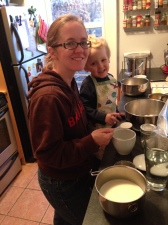
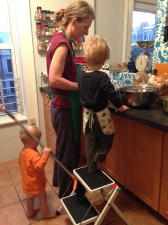
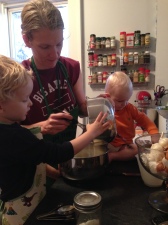
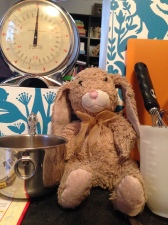

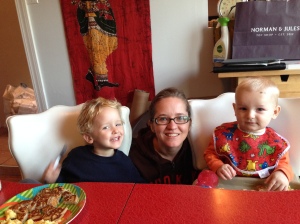
![IMG_4212[1]](https://milesandmoms.files.wordpress.com/2013/11/img_42121.jpg?w=500&h=666)